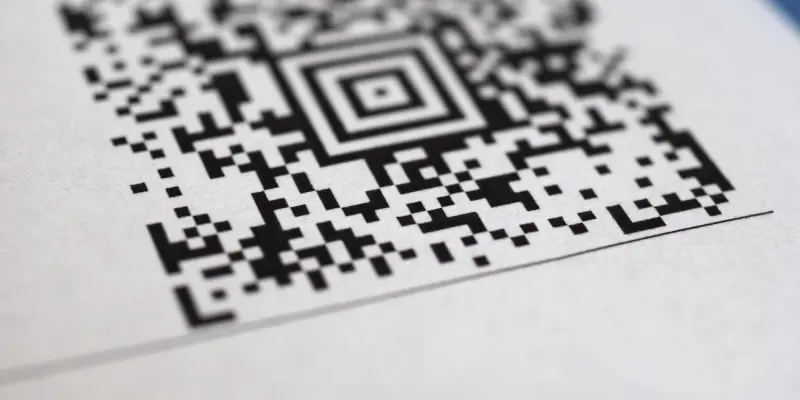Once regarded as a novel concept, QR codes have now seamlessly embedded themselves as a vital component in modern-day digital communication. This black-and-white matrix design has transitioned from being an intriguing tech tidbit to serving as a cornerstone of today’s digital interactions. The transformation is marked by the codes’ ability to merge the physical and digital realms effortlessly, facilitating everything from educational experiences to seamless business operations. Their adoption accelerated due to their inherent flexibility, the push for contactless solutions, and their ease of use, which appeals to both individuals and organizations. In exploring this technology, it becomes clear that QR codes have redefined user engagements across diverse sectors, proving their significance in today’s fast-paced digital world. This article will delve into the multi-faceted applications and growing indispensability of QR codes in various sectors, showcasing their potential to streamline processes and enhance user experiences significantly.
QR Codes in Marketing and Business
In the realm of marketing, QR codes have emerged as a versatile tool for businesses aiming to innovate their promotional strategies. These codes enable marketers to seamlessly integrate print and digital media, providing a bridge to customers seeking more interactive and engaging experiences. By scanning a QR code, consumers can quickly access detailed information about products, receive exclusive discounts, or partake in interactive campaigns. This technology empowers brands to create dynamic marketing strategies that resonate better with their audience, driving higher engagement rates. Additionally, the flexibility of QR codes allows companies to track and analyze user interactions, offering invaluable insight into consumer behavior. Moreover, businesses benefit financially, as the cost-effectiveness of QR codes eliminates the need for extensive print material distribution, redirecting resources into more impactful marketing initiatives. In this digital age, the ability to adapt and evolve is paramount, and QR codes offer an effective solution for businesses seeking to remain competitive.
Over time, the application of QR codes in business has expanded beyond marketing. Retailers employ them to streamline transactions, with QR-based payment systems providing a quick and contactless checkout process. This innovation caters to the modern consumer’s preference for convenience and speed, enhancing the shopping experience. Companies also utilize QR codes for managing logistics, inventory, and supply chains, showcasing their versatility and potential to optimize operations. QR codes have also found a place in customer relationship management, where they can be used for loyalty programs and to gather feedback efficiently. By integrating QR codes into their operational framework, businesses leverage a simple yet powerful tool that enhances efficiency, improves customer satisfaction, and fosters growth. As their utility continues to unfold, it is evident that QR codes are an indispensable element in the contemporary business landscape.
QR Codes Enhancing Education and Healthcare
Education has witnessed significant shifts with the integration of QR codes, which have modernized teaching and learning methodologies. Educators utilize QR codes to provide easy access to a plethora of resources, ranging from textbooks and academic papers to interactive content and multimedia presentations. It enhances student engagement, providing a more versatile and dynamic learning environment. QR codes also serve as a repository for educational material, allowing teachers to cater to diverse learning styles by offering visual, auditory, and interactive content. This adaptability encourages knowledge exploration beyond traditional instruction, enabling personalized education and fostering a curiosity-driven learning model. For students, the convenience of accessing information anytime and anywhere transforms their educational journey, providing flexibility and autonomy in their learning process. The ongoing evolution suggests that QR codes will play a central role in shaping education’s future landscape.
In healthcare, QR codes are making a substantial impact by improving accessibility to medical information and patient care services. Patients benefit from the immediacy with which they can access their medical records via QR code links, leading to more informed health decisions and better engagement with healthcare providers. This technology also facilitates seamless appointment scheduling, prescription management, and information dissemination about treatments and healthcare services. From a provider’s perspective, QR codes enable efficient patient information management, reducing the risk of errors and streamlining administrative processes. Furthermore, QR codes support healthcare professionals by offering quick reference points to up-to-date medical research and guidelines. As health systems strive to improve service delivery, adopting QR codes is poised to enhance patient care quality, accessibility, and overall healthcare experiences, marking a pivotal advancement in the medical field.
The Indispensable Nature of QR Codes
QR codes, once considered novel, have seamlessly integrated into modern digital communication. These black-and-white matrix designs have evolved from intriguing tech curiosities to essential elements in today’s digital interactions. They bridge the gap between physical and digital spheres, enhancing everything from education to business operations. This transformation is driven by their flexibility, contactless nature, and ease of use, appealing to individuals and organizations alike. QR codes have become pivotal in redefining how users engage with technology across various sectors. Their versatility makes them indispensable in the fast-paced digital world. This article delves into the multifaceted applications of QR codes, highlighting their growing importance across numerous industries. From streamlining processes to enriching user experiences, QR codes hold tremendous potential. As society increasingly leans towards digital solutions, their role only continues to expand, proving them as crucial tools in the enhancement of modern interactions.

